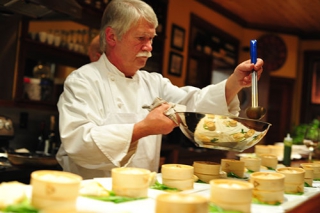
Invest in Yourself and Your Faculty
07 August 2017Education, opportunities to share, and a focus on the food industry’s future combine to create important investment opportunities for faculty.
By Paul Sorgule, MS, AAC
Education is not a static endeavor – much of what we think we know does evolve and as a result, what we are prepared to teach will also evolve. Our task as educators is to properly prepare students to be successful in an industry that continues to change at breakneck speed. To be successful, we must be confident with our skills as teachers and comfortable with our knowledge base regarding the food industry state. How can we possibly be successful as administrators and teachers without active involvement in building our personal bank of knowledge?
As you relax a bit from this past academic year and begin to prepare for the next, keep the following realities in mind. Investment in your on-going education as well as your faculty is, quite possibly, the most important part of your annual plan.
Never Get Too Comfortable
We begin to lose ground the minute we assume the content of what we teach and the methods used are and will remain relevant.
Education Changes
As our student audience changes so too must the format, content, and method of delivering an educational message. As the industry we serve changes, that evolution of message becomes even more important. Most educators would agree our student profile is changing and every chef would agree that the food industry is far different today than it was just a short decade ago.
We are all in the Business of Marketing
Good, bad, or indifferent, this is the reality of a culinary education: Unless we reach a threshold of student numbers we will be unable to deliver the educational quality that every educator desires. To this end, it is important for administrators and individual faculty members to stay apprised of the most current methods used in building a program’s brand and delivering that message.
Train the Trainer Before the Student
The student has the potential to learn what the instructor knows and will assimilate material based on how effectively the instructor delivers the material. One of the most important jobs of a program administrator is ensuring the instructor has all the tools necessary to deliver material at the highest level. Investment in instructor training is of paramount importance.
The Community of Culinary Education is Smaller than You Think
Every culinary program faces the same challenges and opportunities that yours does. Even with 1,000 some odd culinary programs in the U.S., it is safe to say that our business environment makes us less unique than one would think. This closeness lends itself well to sharing and networking.
We Share a Common Mission
When all is said and done, every culinary school, every administrator, and every faculty member shares the same mission: to adequately prepare students for a demanding and ever-changing career in the food industry. Understanding this is important because to accomplish this goal we need ample opportunities to share methods and interact.
Everything Impacts Your Job
The richest environment for building an understanding of what impacts the successful delivery of a culinary education is one where faculty and administrators, chefs, and restaurateurs can interact and share. Another core responsibility of every educator is to stay tuned into the various internal and external factors that impact food and education industries.
We Owe it to Our Students
A college education is one of the most significant investments a student will ever make. A well-delivered culinary education will certainly be viewed as a valuable investment for a graduate’s entire career – one that falls short will be reflected on as a burden. One of the joys or burdens of being responsible for this education is an understanding of this cost/value relationship.
Think About the Possibilities
A cutting edge program with first class delivery is built on the strength of faculty and their engagement in current information and new techniques in the classroom. What are you doing to network, continually learn, share and grow? Administrators need to fight for budgets that support active involvement in and continuing education through organizations such as CAFÉ, the ACF, Bread Baker’s Guild, Chef’s Collaborative, Women Chefs and Restaurateurs, and Slow Food USA to name a few.
Make this a priority in 2017/2018.
PLAN BETTER – TRAIN HARDER
Paul Sorgule, MS, AAC, president of Harvest America Ventures, a mobile restaurant incubator based in Saranac Lake, N.Y., is the former vice president of New England Culinary Institute and a former dean at Paul Smith’s College. Contact him at This email address is being protected from spambots. You need JavaScript enabled to view it..
